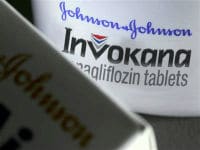Update: Invokana Kidney Failure Lawsuit Filed in New Jersey
May 1, 2017 – A New Jersey woman who allegedly developed an acute kidney injury that led to end-stage renal disease (kidney failure) less than 2 months after taking Invokana for the first time has filed a products liability lawsuit against Janssen and J&J. Plaintiff Jessica Calongne claims that her injuries were preventable and the result of manufacturers’ failure to adequately test Invokana and warn the public and medical community about its potential health risks.
What’s the Problem?
Invokana was approved in March 2013, and quickly became a widely-prescribed treatment for type 2 diabetes. However, concerns soon emerged about a potential link between the side effects of Invokana and kidney failure, with a large number of adverse events being linked to the medication in its short time on the market.
How Does Invokana Work?
Invokana was the 1st of a new class of type 2 diabetes medications called sodium-glucose-cotransporter-2 (SGLT2) inhibitors. Other drugs in this class include Invokamet (canagliflozin / metformin HCl), Farxiga (dapagliflozin), Jardiance (empagliflozin), Glyxambi (empagliflozin / linagliptin) and Xigduo (dapagliflozin / metformin HCl extended-release).
SGLT2 inhibitors work by affecting normal kidney functions, allowing more sugar to be removed from the body through the urine. As a result, concerns are being raised about why the risk of kidney failure was not anticipated by the manufacturer and warned about before Invokana was even released.
ISMP Report
On May 6, 2015, an independent report by the Institute for Safe Medication Practices (ISMP) noted concerns about a potential link between Invokana and kidney damage. The group looked at adverse event reports submitted to the FDA during Invokana’s 1st year on the market, and found nearly 500 incidents associated with the drug. These included injuries which suggested signs of renal toxicity, including:
- Kidney Failure
- Impaired Renal Functions
- Kidney Stones
- Dehydration
- Urinary Tract Infections (UTIs)
- Hypersensitivity
The ISMP report identified at least 54 cases of acute or unspecified renal failure or impairment associated with Invokana, which likely only represents a small fraction of the total number of kidney problems linked to the drug, as most injuries are never even reported to the FDA.
FDA Warning
Just over a week after the ISMP report was released, the U.S. Food & Drug Administration (FDA) issued a warning about diabetic ketoacidosis (DKA) as a potential complication of Invokana. If left untreated, ketoacidosis can lead to kidney failure.
Ketoacidosis does not usually occur in type 2 diabetics, according to the FDA, and the reports were “atypical in that glucose levels were only mildly elevated at less than 200 mg/dL in some reports, while patients with type 1 diabetes who have DKA typically have glucose levels greater than 250 mg/dL.”
Signs of Kidney Failure
Acute kidney failure occurs when the kidneys are no longer able to properly filter waste from the bloodstream. This can cause a dangerous buildup of wastes in the blood, leading to adverse health complications and even death.
Kidney failure symptoms may include:
- Chest Pain
- Confusion
- Drowsiness
- Decreased Urine Output
- Fatigue
- Nausea
- Seizures or Coma
- Shortness of Breath
- Swelling of Legs, Ankles and Feet
Stages of Chronic Kidney Disease (CKD)
- Stage 1 – Kidney damage with normal or high glomerular filtration rate (GFR) of 90 or above
- Stage 2 – Kidney damage with mildly low GFR of 60-89
- Stage 3 – Kidney damage with moderately low GFR of 30-59
- Stage 4 – Kidney damage with severely low GFR of 15-29
- Stage 5 – Kidney failure; GFR below 15
Treatment
Treating kidney failure typically requires hospitalization. How long a patient stays in the hospital depends on how severe the condition is, and how quickly the kidneys recover. Treatment involves identifying what initially caused the kidney damage. If Invokana is found to be the likely cause, the doctor may recommend switching to a diabetes medication with fewer side effects.
Canadian Invokana Kidney Failure Lawsuit Seeks Class-Action Status, $1B in Damages
March 21, 2016 – An Invokana lawsuit filed in Canada last year is seeking $1 billion in damages from Janssen and class-action status from the Ontario Superior Court of Justice, which is expected to rule on the matter later this year. According to the suit, plaintiff began taking Invokana to treat symptoms of her type 2 diabetes in 2014, and was subsequently diagnosed with kidney failure after learning about the side effect on an American television commercial. Plaintiff claims she would have never considered taking the drug had she been aware of the risks involved.
Tennessee Man Files Suit Alleging Kidney Failure from Invokana
February 9, 2016 – A man from Tennessee who claims he suffered kidney failure after taking Invokana has filed a product liability lawsuit (PDF) against the manufacturers, alleging the companies failed to adequately warn of the potential health risks associated with the drug. Plaintiff Wardell Fleming claims he began taking Invokana in Nov. 2013, and shortly thereafter developed kidney damage and reduced kidney function, ultimately leading to full-blown kidney failure. Fleming also says he is now at an increased risk for heart attack, stroke, diabetic ketoacidosis (DKA) and other serious side effects as a result of his use of the drug.
Do I Have an Invokana Kidney Failure Class Action Lawsuit?
The Class Action Litigation Group at our law firm is an experienced team of trial lawyers that focus on the representation of plaintiffs in Invokana lawsuits. We are handling individual litigation nationwide and currently accepting new kidney failure cases in all 50 states.
Free Confidential Case Evaluation: Again, if you developed kidney failure after taking Invokana, you should contact our law firm immediately. You may be entitled to a settlement by filing a class action suit and our lawyers can help.

